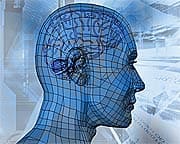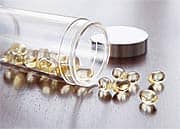Life Extension Magazine®
| One of the distressing—and most often lamented—side effects ofthe aging process is a loss of sexuality and its components: desire, enjoyment, and performance. At 20, a man experiences an erection daily, but at 70, he’s lucky to have one every two weeks! For women, sexual desire is often lost through several age-related mechanisms. Since healthy sexual function has strong connections to a robust vascular system as well as psychological health, it is an important cornerstone of a life enhancement strategy.1 Healthy sex requires a multitude of components working in tandem, from brain neurotransmitters to hormonal and nutritional balance. The encouraging news is that age-related factors contributing to sexual dysfunction can be prevented and treated, making it possible to maintain a satisfying sexual life well into advanced age.2 Virtually everyone can maintain a healthy sex drive and enjoy one or two sexual events a week. This article explores these factors and how they work together to not only keep your sex drive healthy but protect against age-related diseases. Aging’s Toll on Sex is ReversibleAging affects all parts of the body linked with sexual function both internally and externally. In men, greater physical stimulation is required to attain and maintain erections and orgasms are less intense due to brain, hormonal, and vascular factors. In women, menopause contributes to sexual decline, both as a result of its physical symptoms (dryness, hot flashes, and weight gain) and mental symptoms (mood swings and irritability).
Cardiovascular disease, atherosclerosis, hypertension, diabetes, and virtually any disease can have significant negative effects on healthy sexuality. For men, problems like heart disease, diabetes, hypertension, and renal failure can produce erectile dysfunction.3,4 In women, diabetes in particular has been shown in various studies to lessen desire, arousal, lubrication, and orgasm.5 Diabetes damages nerves in the clitoris and penis, which literally stunts the ability to experience sensuality. For both sexes, other factors like sleep disorders, dementia, slower metabolism, and aches and pains associated with aging decrease sexual desire and performance. Obesity is associated with lack of enjoyment of sexual activity, lack of sexual desire, difficulties with sexual performance, and avoidance of sexual encounters. Obesity causes endothelial dysfunction, which increases men’s risk of developing erectile dysfunction.6 Obesity also affects women’s arousal, lubrication, orgasm, and satisfaction.7 External factors like smoking, alcohol and drug abuse, stress, and side effects from almost any medication (particularly antidepressants) can impact sexual arousal and response at any age; their effects are even more marked in older people, with erectile dysfunction being a common complaint. While well-known treatments like Levitra®, Viagra®, and Cialis® address erectile dysfunction, they mask the underlying problems and eventually may stop producing the desired effect for patients. Side effects ranging from headaches to vision abnormalities8 have been commonly reported with such medications. These drugs work best at treating vascular forms of erectile dysfunction (i.e., reduced blood flow to the penis, brain, and body), but this is rarely the result of vascular trouble alone. Thorough medical testing is needed to determine the root cause of erectile dysfunction. It should also be noted that erectile dysfunction, while often a result of degenerative diseases, can itself indicate more serious health problems. Erectile dysfunction has been identified in many studies as a predictive precursor of cardiovascular disease,9 and a proven risk factor for diabetes, hypertension, and angina.10 Of course, the aging body isn’t the only problem. There is also the brain and mind to contend with. A healthy brain leads to a healthy attitude, and a positive outlook is required for an active sex life. Significant psychological factors that affect loss of sexuality include perceived attractiveness in elderly people and reactions to societal stereotypes, which are too often trivialized. They can be remedied, however, with hormones and nutritional agents that help restore figure, physique, and psychological well-being.
The Biochemistry of Healthy Sex: Hormones and NeurotransmittersIn both men and women, sexual activity and performance is determined by the levels of neurotransmitters and hormones in the brain and body. Hormones are biochemical compounds produced in the brain and in other organs and glands that regulate specific systems in the body. Like tiny chemical messengers, hormones carry signals from one cell to another. Similarly, neurotransmitters convey information between nerve cells and other cells. Many brain neurotransmitters and hormones are associated with sexual and reproductive function, for example, the neurotransmitters dopamine, acetylcholine, gamma-aminobutyric acid (GABA), and serotonin and the hormones estrogen, progesterone, and testosterone. These chemical messengers are crucial not just for sexual health, but for our overall health. Taken to its most basic level, sexuality in humans can be broken down into four components: desire, arousal, orgasm, and resolution. Each phase is governed by a corresponding brain biochemical, along with contributing hormonal influences. The result is simple mathematics, in conjunction with a balancing act: when the brain experiences a chemical deficiency in any of the four primary areas due to normal aging, the desire for sex correspondingly diminishes. Sex doesn’t seem so enticing, and the physical act itself will leave one lacking. Likewise, diminishing hormone levels with aging contribute to declining sexual function in older adults.11 Assessing Neurotransmitter ImbalancesOne of the first steps to achieving a balanced life—and a better sex life—is to understand which of your neurotransmitters could be brought back into better balance. We are now able to test the brain using the brain map or BEAM (Brain Evaluation and Assessment Method) test. The BEAM test measures electrophysiology, memory, attention, personality type, temperament, and deficiencies in the four core neurotransmitters (dopamine, acetylcholine, GABA, and serotonin). You can use the results to find the correct match of nutritional and hormonal agents to enhance brain function, sexual health, and well-being. Alternately, an individual’s symptom picture may provide clues revealing which neurotransmitter systems are out of balance. Dopamine and DesireDopamine has been conclusively recognized in many studies over the last decade as playing a key role in desire.12,13 Dopamine is a neurotransmitter that acts on the sympathetic nervous system to control libido, aggression, and power. In medication form, dopamine acts on the sympathetic nervous system to produce effects such as increased blood pressure and increased heart rate.14 Low levels of dopamine typically result in loss of libido as well as reduced interest in sex and decreased energy for sex. Sexual arousal also suffers.15 Medications that block dopamine receptors have been associated with decreased libido.16 One recent animal study determined that administration of drugs that stimulated dopamine terminals in the brain was effective in treating hypoactive sexual disorders.17 The good news is that everyone’s libido can be greatly enhanced. Numerous vitamins, minerals, natural treatments, hormones, and prescription therapies can boost sexual energy in individuals who experience symptoms of low dopamine levels:
Acetylcholine and ArousalArousal is determined and initiated by acetylcholine. While not as powerful a neurotransmitter as dopamine in terms of regulating sexual desire, depleted acetylcholine levels are known to negatively affect cognitive functioning, especially memory, attention, and creativity.18,19 People with acetylcholine deficiencies may find themselves unable to concentrate and focus on sex. A loss of acetylcholine particularly affects sexual arousal.20 Acetylcholine also regulates internal moisture.18 Low levels can cause dryness, affecting vaginal lubrication in women—which in turn leads to lowered desire for sex. Lower moisture levels can also adversely affect semen volume in men. Numerous nutrients, natural treatments, and hormones can boost arousal in individuals who experience symptoms of low acetylcholine levels:
Enhancing Orgasm with GABAOrgasm release is controlled by the body’s levels of gamma-aminobutyric acid (GABA). GABA (synthesized from glutamine and inositol) is considered to be one of the most important inhibitory neurotransmitters in the central nervous system. GABA helps inhibit excitatory neurotransmitters that can cause anxiety if the system is overstimulated. This is important, since chronic anxiety can lead to loss of sexual interest and sexual dysfunction. GABA is responsible for regulating sexual tone and plays an important role in brain hypothalamic/pituitary function.21 Therapeutic drugs that increase the available amount of GABA typically have relaxing, anti-anxiety, and mood-soothing effects.22 Conversely, when GABA becomes depleted, it is difficult to relax and let go of fear and negative feelings. Hence, orgasm becomes difficult. GABA-enhancing compounds could help increase dopamine levels, which may enhance sexual satisfaction. Numerous vitamins, minerals, natural treatments, hormones, and prescription therapies can support sexual release in individuals who experience symptoms of low GABA levels:
| ||||||||||||||||||||||||
Improving Resolution with Serotonin
Resolution is related to serotonin, another neurotransmitter. Serotonin is synthesized from the amino acid tryptophan in serotonergic neurons in the central nervous system, as well as cells in the gastrointestinal tract. Serotonin modulates anger, aggression, body temperature, mood (thus its depression-busting effects), sleep, and sexuality.23 Low serotonin levels can result in a lack of joy and decreased feelings of intimacy. Serotonin may also play a role in the timing of sexual release. Premature ejaculation affects 20-30% of men.24 Selective serotonin reuptake inhibitors (SSRIs), which delay serotonin’s reuptake into nerve cells, may increase ejaculatory control and delay ejaculation in men with premature ejaculation.25 SSRIs have been associated with sexual dysfunction such as low libido, erectile dysfunction, and anorgasmia.26 Short-acting SSRIs are under development and might help address premature ejaculation while avoiding the unwanted sexual side effects of this class of medications.27 In common with GABA, serotonin taken orally does not pass directly into the central nervous system because it does not cross the blood-brain barrier. However, tryptophan and its metabolite 5-hydroxytryptophan (5-HTP), from which serotonin is synthesized, can and do cross the blood-brain barrier. These agents are available as dietary supplements and may help promote sexual satisfaction. Numerous vitamins, minerals, natural treatments, and hormones can support sexual resolution in individuals who experience symptoms of low serotonin levels:
Achieving Hormonal BalanceWhen low levels or imbalances of hormones occur, the ability to engage in healthy sex is challenging. Sex can be unsatisfying, difficult, or even impossible. Correcting these imbalances achieves rejuvenation of the body and the brain. There is no better way to make yourself feel 15 years younger than to enjoy frequent, long-lasting sex. This will also have a welcome spin-off effect, not just in heightened sexual desire and performance, but in improvements of all health-related aspects of your life, since sexuality is a marker of overall health. Sexual activity ideally should never fall to less than once weekly if we want to stay young. Cholesterol is a precursor of all sex hormones. Estrogen, progesterone, testosterone, pregnenolone, androstenedione, and dehydroepiandrosterone (DHEA) all come from cholesterol. All of these hormones in tandem play some role in sexuality. As we age, our bodies’ cholesterol levels naturally rise, but the ovaries, testicles, and adrenal glands cannot convert cholesterol into hormones. The result is reduced sexual motivation, and the typical self-image of feeling “less sexy.” In men, erectile dysfunction is a frequent result, while women tend to lose interest in sex.
A decline in the level of any hormone is neither irreparable nor permanent. Anyone can turn back the clock on their sex life. A variety of blood tests can help determine which specific hormones are low and need to be corrected and can guide dosing strategies to restore biochemical balance and rejuvenate one’s sex life. Maintaining blood levels within youthful ranges can provide great benefit with little or no risk. But remember—hormone replacement with bioidentical hormones, not synthetic hormones, is optimal for health.
In recent years, forward-thinking practitioners have turned their attention toward natural bioidentical compounds, as opposed to synthetic compounds. The molecular structures of bioidentical hormones are identical to hormones produced by the human body. Moreover, bioidentical therapies are generally free from side effects, unlike their synthetic counterparts. In fact, bioidentical hormones tend to be so safe that many are sold as over-the-counter supplements. Here is a list of some of the most important hormones affecting sexuality.
ConclusionHealthy sexual function is crucial to overall well-being and longevity. It is possible to maintain youthful sexuality well into your golden years by using targeted nutritional approaches to balance neurotransmitter profiles, along with optimal hormone balance and the healthy Younger You Rainbow Diet. If you have any questions on the scientific content of this article, please call a Life Extension Health Advisor at 1-800-226-2370. Eric Braverman, MD is director of the Place for Achieving Total Health (PATH Medical) and clinical associate professor of neurological surgery at Weill Cornell Medical College in New York City. For more information, please visit his website at www.pathmed.com or call 888-304-PATH. | ||||||||||||||||
| References | ||||||||||||||||
| 1. Haake P, Krueger TH, Goebel MU, et al. Effects of sexual arousal on lymphocyte subset circulation and cytokine production in man. Neuroimmunomodulation. 2004;11(5):293-8. 2. Nappi RE, Albani F, Valentino V, et al. Aging and sexuality in women. Minerva Ginecol. 2007 Jun;59(3):287-98. 3. Bernardo A. Sexuality in patients with coronary disease and heart failure. Herz. 2001 Aug;26(5):353-9. 4. Ali ME, Abdel-Hafez HZ, Mahran AM, et al. Erectile dysfunction in chronic renal failure patients undergoing hemodialysis in Egypt. Int J Impot Res. 2005 Mar;17(2):180-5. 5. Abu Ali RM, Al Hajeri RM, Khader YS, Shegem NS, Ajlouni KM. Sexual Dysfunction in Jordanian Diabetic Women. Diabetes Care. 2008 May 5. 6. Esposito K, Giugliano F, Ciotola M, De Sio M, D’Armiento M, Giugliano D. Obesity and sexual dysfunction, male and female. Int J Impot Res. 2008 Jul-Aug;20(4):358-65. 7. Esposito K, Ciotola M, Giugliano F, et al. Association of body weight with sexual function in women. Int J Impot Res. 2007 Jul-Aug;19(4):353-7. 8. Available at: http://www.rxlist.com/cgi/generic/viagra_ad.htm. Accessed July 18, 2008. 9. Stuckey BG, Walsh JP, Ching HL, et al. Erectile dysfunction predicts generalised cardiovascular disease: evidence from a case-control study. Atherosclerosis. 2007 Oct;194(2):458-64. 10. Shabsigh R, Shah M, Sand M. Erectile dysfunction and men’s health: developing a comorbidity risk calculator. J Sex Med. 2008 May;5(5):1237-43. 11. Maggio M, Cappola AR, Ceda GP, et al. The hormonal pathway to frailty in older men. J Endocrinol Invest. 2005;28(11 Suppl Proceedings):15-9. 12. Ben Z, I, Tessler R, Cohen L, et al. Polymorphisms in the dopamine D4 receptor gene (DRD4) contribute to individual differences in human sexual behavior: desire, arousal and sexual function. Mol Psychiatry. 2006 Aug;11(8):782-6. 13. Brown AD, Blagg J, Reynolds DS. Designing drugs for the treatment of female sexual dysfunction. Drug Discov Today. 2007 Sep;12(17-18):757-66. 14. Wu LJ, He QY, Li G, et al. Effect of dopamine and norepinephrine on hemodynamics and tissue oxygenation of patients with septic shock. Zhongguo Wei Zhong Bing Ji Jiu Yi Xue. 2008 Jan;20(1):18-22. 15 Both S, Everaerd W, Laan E, Gooren L. Effect of a single dose of levodopa on sexual response in men and women. Neuropsychopharmacology. 2005 Jan;30(1):173-83. 16. Stimmel GL, Gutierrez MA. Sexual dysfunction and psychotropic medications. CNS Spectr. 2006 Aug;11(8 Suppl 9):24-30. 17. Pfaus J, Giuliano F, Gelez H. Bremelanotide: an overview of preclinical CNS effects on female sexual function. J Sex Med. 2007 Nov;4 Suppl 4:269-79. 18. Braverman ER. Younger you: unlock the hidden power of your brain to look and feel 15 years younger. New York, NY: McGraw-Hill; 2007. 19. Amenta F, Tayebati SK. Pathways of acetylcholine synthesis, transport and release as targets for treatment of adult-onset cognitive dysfunction. Curr Med Chem. 2008;15(5):488-98. 20. Andersson KE. Neurotransmitters: central and peripheral mechanisms. Int J Impot Res. 2000 Oct;12 Suppl 4:S26-33. 21. Lux-Lantos VA, Bianchi MS, Catalano PN, Libertun C. GABA(B) Receptors in Neuroendocrine Regulation. Cell Mol Neurobiol. 2008 Feb 9. 22. Pinna G, Agis-Balboa RC, Pibiri F, et al. Neurosteroid Biosynthesis Regulates Sexually Dimorphic Fear and Aggressive Behavior in Mice. Neurochem Res. 2008 May 13. 23. Mohammad-Zadeh LF, Moses L, Gwaltney-Brant SM. Serotonin: a review. J Vet Pharmacol Ther. 2008 Jun;31(3):187-99. 24. Wisard M, Audette N. Premature ejaculation: pills or sexology? Rev Med Suisse. 2008 Mar 26;4(150):780-4. 25. Arafa M, Shamloul R. A randomized study examining the effect of 3 SSRI on premature ejaculation using a validated questionnaire. Ther Clin Risk Manag. 2007 Aug;3(4):527-31. 26. Csoka A, Bahrick A, Mehtonen OP. Persistent sexual dysfunction after discontinuation of selective serotonin reuptake inhibitors. J Sex Med. 2008 Jan;5(1):227-33. 27. Giuliano F, Hellstrom WJ. The pharmacological treatment of premature ejaculation. BJU Int. 2008 May 15. 28. Rosano GM, Vitale C, Fini M. Hormone replacement therapy and cardioprotection: what is good and what is bad for the cardiovascular system? Ann N Y Acad Sci. 2006 Dec;1092:341-8. 29. Mariak Z, Rakowski G, Krejza J. Neuroprotective effect of oestrogen on the central nervous system. Przegl Lek. 2007;64(12):1028-30. 30. Moskowitz D. A comprehensive review of the safety and efficacy of bioidentical hormones for the management of menopause and related health risks. Altern Med Rev. 2006 Sep;11(3):208-23. 31. Muller M, Aleman A, Grobbee DE, de Haan EH, van der Schouw YT. Endogenous sex hormone levels and cognitive function in aging men: is there an optimal level? Neurology. 2005 Mar 8;64(5):866-71. 32. Seftel AD. From aspiration to achievement: assessment and noninvasive treatment of erectile dysfunction in aging men. J Am Geriatr Soc. 2005 Jan;53(1):119-30. 33. Frank JE, Mistretta P, Will J. Diagnosis and treatment of female sexual dysfunction. Am Fam Physician. 2008 Mar 1;77(5):635-42. 34. Abdallah RT, Simon JA. Testosterone therapy in women: its role in the management of hypoactive sexual desire disorder. Int J Impot Res. 2007 Sep-Oct;19(5):458-63. 35. Sheffield-Moore M, Paddon-Jones D, Casperson SL, et al. Androgen therapy induces muscle protein anabolism in older women. J Clin Endocrinol Metab. 2006 Oct;91(10):3844-9. 36. Kirschner MA. Hirsutism and virilism in women. Spec Top Endocrinol Metab. 1984;6:55-93. 37. McKay D. Nutrients and botanicals for erectile dysfunction: examining the evidence. Altern Med Rev. 2004 Mar;9(1):4-16. 38. Cameron DR, Braunstein GD. The use of dehydroepiandrosterone therapy in clinical practice. Treat Endocrinol. 2005;4(2):95-114. 39. Genazzani AD, Lanzoni C, Genazzani AR. Might DHEA be considered a beneficial replacement therapy in the elderly? Drugs Aging. 2007;24(3):173-85. 40. Cameron DR, Braunstein GD. Androgen replacement therapy in women. Fertil Steril. 2004 Aug;82(2):273-89. 41. Saad F, Hoesl CE, Oettel M, Fauteck JD, Rommler A. Dehydroepiandrosterone treatment in the aging male--what should the urologist know? Eur Urol. 2005 Nov;48(5):724-33; discussion 733. 42. Drago F, Busa’ L. Acute low doses of melatonin restore full sexual activity in impotent male rats. Brain Res. 2000 Sep 29;878(1-2):98-104. 43. Data on file. 44. Data on file. | ||||||||||||||||






